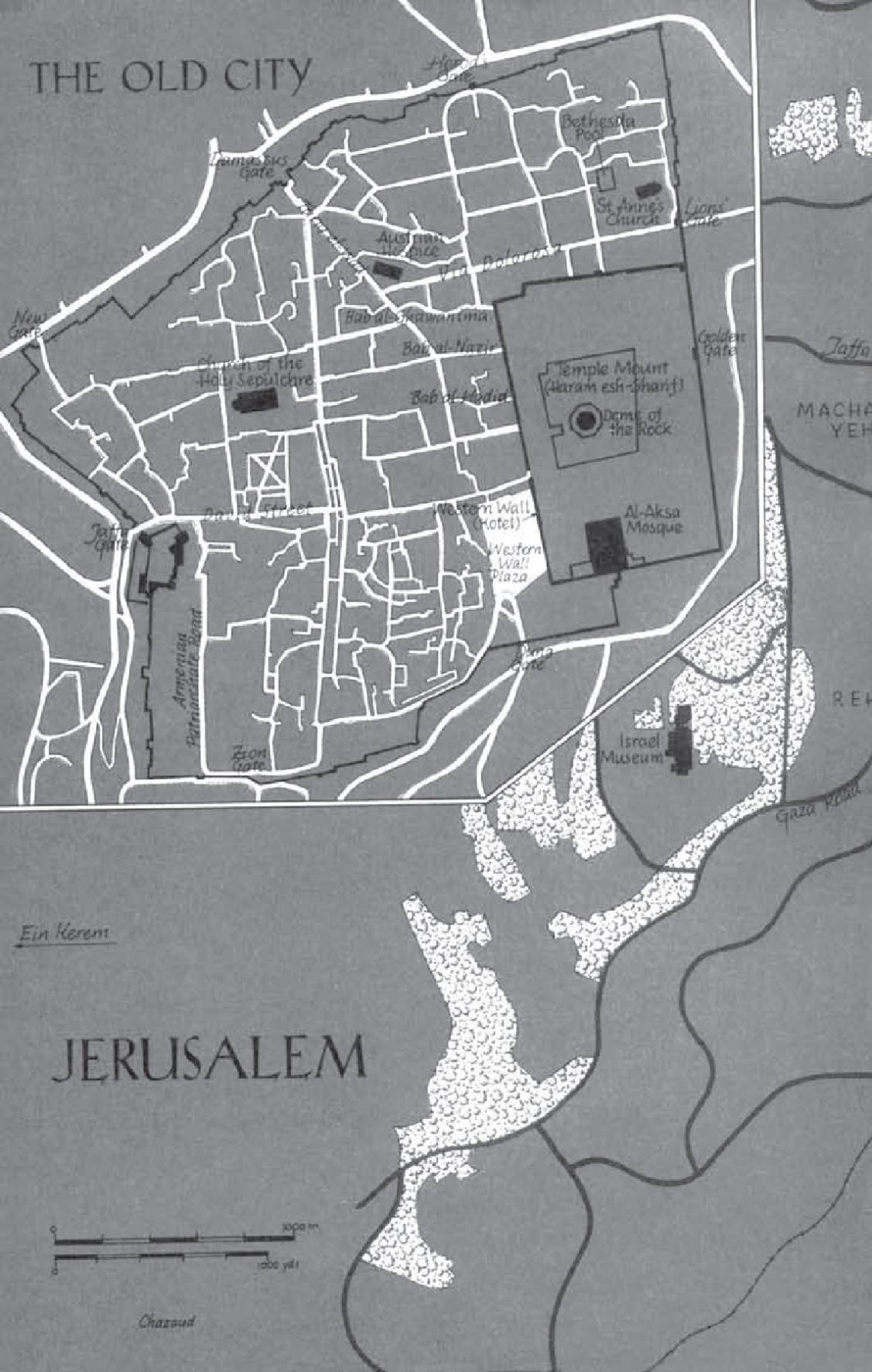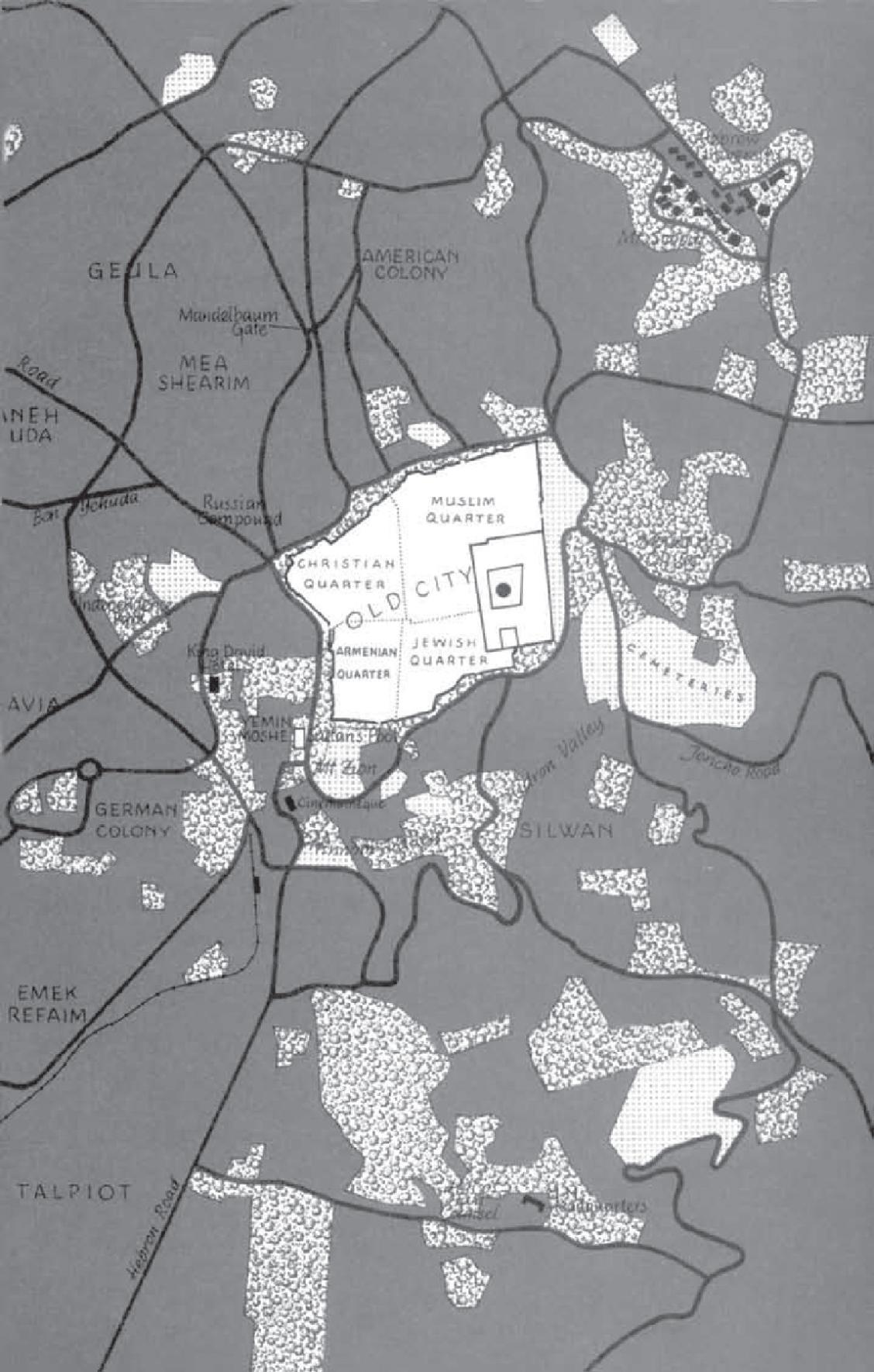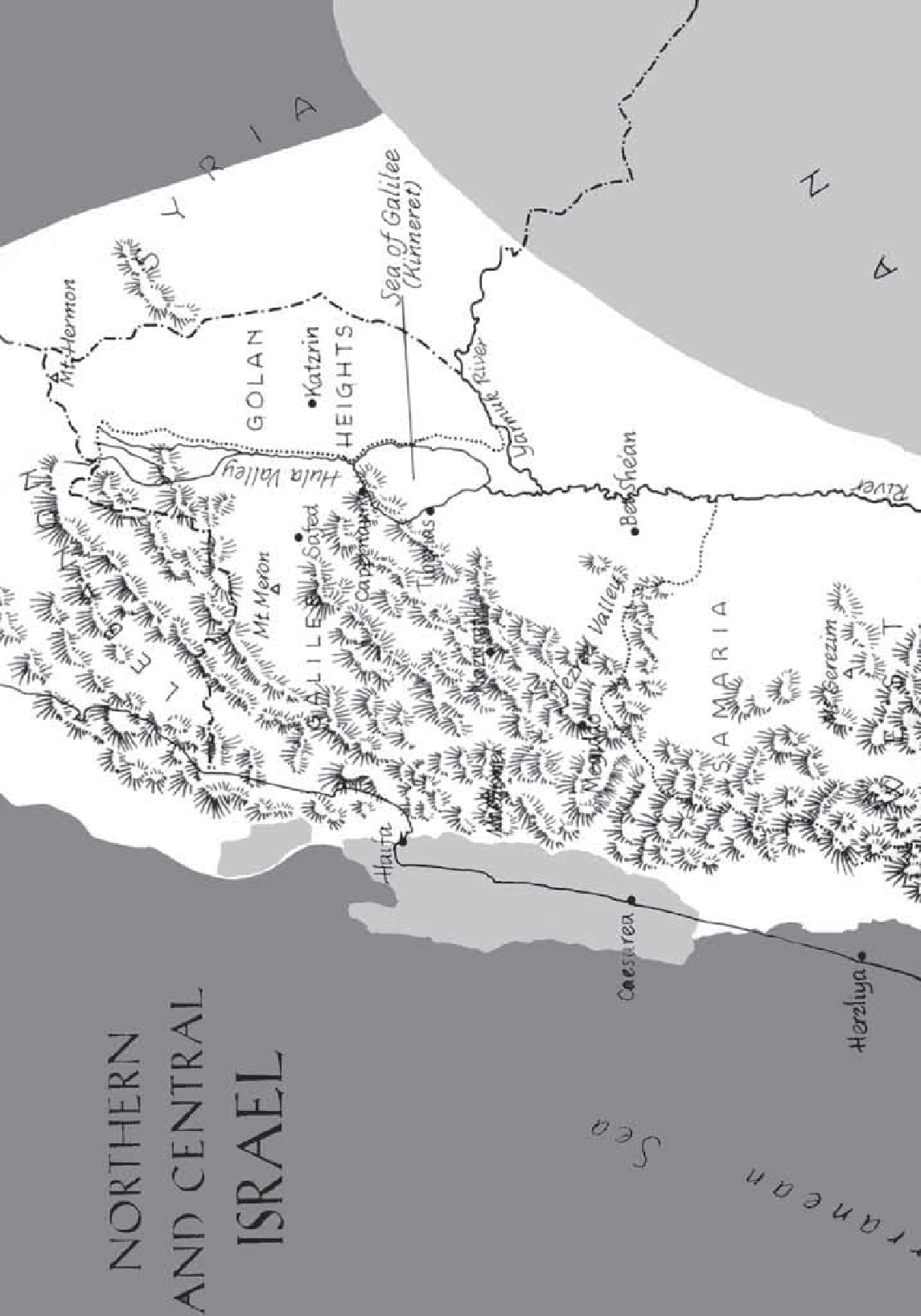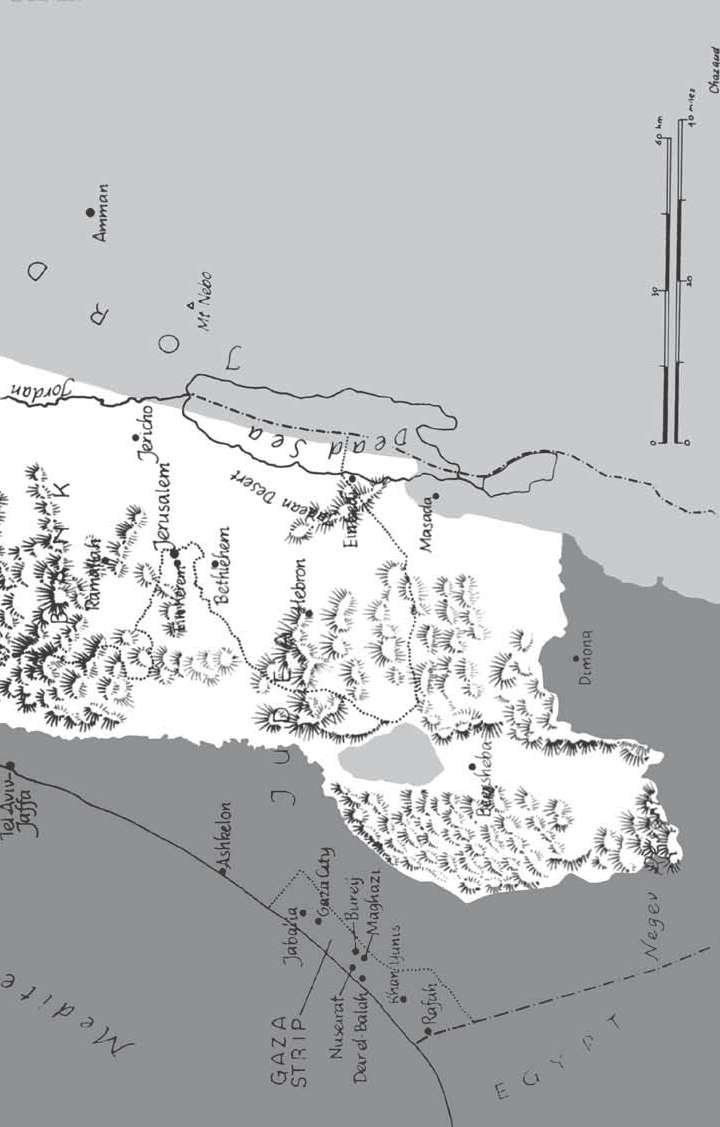Damascus Gate
Authors: Robert Stone

 
Map: Nothern and Central Israel
Map: Nothern and Central Israel
First Mariner Books edition 2011
Copyright © 1998 by Robert Stone
ALL RIGHTS RESERVED
For information about permission to reproduce selections from this book, write to Permissions, Houghton Mifflin Company, 215 Park Avenue South, New York, New York 10003.
Library of Congress Cataloging-in-Publication Data
Stone, Robert, date.
Damascus Gate / Robert Stone.
p. cm.
ISBN
978-0-395-66569-5
ISBN
978-0-547-59938-0 (pbk.)
I. Title.
PS
3569.
T
6418
D
36 1998
813'.54âdc21 97-49615
CIP
Endpaper maps: Jacques Chazaud
Printed in the United States of America
DOC
10 9 8 7 6 5 4 3 2 1
The author is grateful for permission to quote lines from the following: "V. Cape Ann" from Collected Poems 1909â1962 by T. S. Eliot, copyright 1936 by Harcourt Brace & Company, copyright © 1964, 1963 by T. S. Eliot, reprinted by permission of the publisher. "Rillons, Rillettes" from The Mind-Reader, copyright © 1966 and renewed 1994 by Richard Wilbur, reprinted by permission of Harcourt Brace & Company.
FOR CANDIDA
Enigma and evasion grow;
And shall we never find Thee out?
â
HERMAN MELVILLE,
Clarel




1
Jerusalem, 1992
T
HAT MORNING
Lucas was awakened by bells, sounding across the Shoulder of Hinnom from the Church of the Dormition. At first light there had been a muezzin's call in Silwan, insisting that prayer was better than sleep. The city was well supplied with divine services.
He climbed out of bed and went into the kitchen to brew Turkish coffee. As he stood at the window drinking it, the first train of the day rattled past, bound over the hills for Tel Aviv. It was a slow, decorous colonial train, five cars of nearly empty coaches with dusty windows. Its diminishing rhythms made him aware of his own solitude.
When the train was gone, he saw the old man who lived in one of the Ottoman houses beside the tracks watering a crop of kale in the early morning shade. The kale was deep green and fleshy against the limestone rubble from which it somehow grew. The old man wore a black peaked cap. He had high cheekbones and a ruddy face like a Slavic peasant's. The sight of him made Lucas imagine vast summer fields along which trains ran, long lines of gray boxcars against a far horizon. Once Lucas dreamed of him.
He had grapefruit and toast for breakfast and read the morning's
Jerusalem Post.
A border policeman had been stabbed in the Nuseirat camp in the Gaza Strip but was expected to recover. Three Palestinians had been shot to death by Shin Bet hit squads, one in Rafah, two in Gaza City.
Haredim
in Jerusalem had demonstrated against the Hebrew University's archeological dig near the Dung Gate; ancient Jewish burial sites were being uncovered. Jesse Jackson was threatening to organize a boycott against major league baseball. In India, Hindus and Muslims were fighting over a shrine that probably predated both of their religions. And, in a story from Yugoslavia, he saw again the phrase "ethnic cleansing." He had come across the evocative expression once or twice during the winter.
There was also a full-page story on the number of foreign pilgrims visiting the country for Passover and Western Holy Week. Lucas was surprised to find himself overtaken by the holidays.
He dressed and took a second cup of coffee out on his tiny balcony. The day was innocently glorious; spring sunlight scented the pines and sparkled on the stone walls of Emek Refaim. For weeks he had been postponing work on an article about the Sinai he had contracted to write for Conde Nast. The deadline had passed the previous Friday, and before long they would be phoning him for it. Still, the fine weather inclined him to truancy. When at last he went to his desk, his open appointment book confirmed the date: Easter Sunday in the Latin church and also the sixteenth of Nisan. Passover had arrived the day before. On a sudden impulse Lucas decided to go over to the Church of the Holy Sepulchre.
Bethlehem Road was nearly free of traffic. In spite of its elderly population, Lucas's neighborhood in the German Colony was the most secular in the city and its atmosphere was never one of piety. Old couples strolled in the spring sunshine. The day before, he had seen a few young families loading their Volvos for camping trips in the desert or the Galilee. But walking up the nearly deserted avenue, past the terraces of the Cinematheque, under the ramparts of the Church of Scotland Hospice adorned with its bonny blue flag, he could feel the gravity of the ancient city across the canyon. A hundred tour buses were parked in the streets under the Old City walls. At the distant Jaffa Gate, he could see the swaying forms of mounted policemen herding a pressing crowd of bright pilgrims. At the other end of the fortress, a line of devotees toiled single file up the slope to the Zion Gate.
He walked down into the shadow of the valley, over the bridge by the Sultan's Pool and past the Koranic verse carved in the shell of the Ottoman fountain. "All that is created comes of water," it read. Then, humbled by the looming walls, he trudged up the ascent to Zion.
On the path to Zion Gate, he walked mainly among Orthodox Jewish men in black, bound for the Western Wall. Some of the Jews tried to converse with each other as they climbed, scrambling along the shoulder to keep pace. Besides the
haredim,
there were a few German Catholics on the path because the Dormition Abbey above them was a German church. These pilgrims were of the era before Germans had become once again thin and handsome; many were florid and overweight, too bulkily dressed and perspiring freely. Yet they seemed happy. Most of the men looked plain and decent; they wore sodality pins and carried missals. Some of the women had sweet angelic faces. If they were sixty, Lucas calculated ... born 1932, thirteen at the end of the war. He had picked up the habit of calculating Germans' ages from the Israelis.
It was a cheerful climb, with a smell of sage and jasmine on the wind and desiccated wildflowers underfoot and voices in Hebrew, Yiddish, German. The great walls reduced everyone, confounding all kingdoms. As he neared the ridge, the bells began again.
Following the file toward the gate, he thought of a prophecy, in a
Midrash
someone had related to him. At the End of Days, multitudes would try to cross the Valley of Hinnom to the holy city. Christians, traversing a bridge of stone, would fall to perdition. Muslims, on a wooden bridge, would follow them. Then the Jews would cross, glorified, on a bridge of gossamer. What about me, Lucas wondered, not for the first time.
The top of the trail was paved and provided for by the Jews of Canada. At its end, the mild children of wicked Edom and the pious men of Israel parted in sweet mutual oblivion, the Germans to their hugely unfortunate yellow abbey, the Jews toward the Western Wall. Lucas went his own way, north on Armenian Patriarchate Road. There he encountered more
haredim
headed for the Wall, putting the confusions of Easter behind them. In front of St. James's Cathedral, teenage Armenian acolytes were dressing their ranks for a Sunday procession.